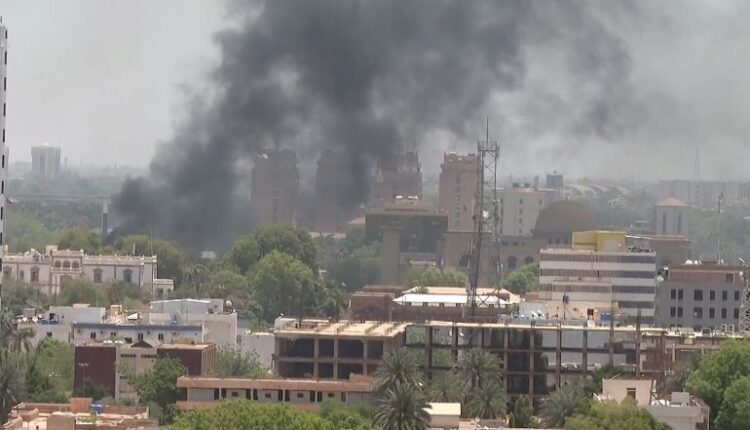
KOBANI, Syria (North Press) – Syrians stranded in Sudanese cities are appealing to be evacuated from the war zones in Sudan after battles in the country have intensified.
The Sudanese army and the Rapid Support Forces (RSF), a paramilitary group, have been clashing across the country since April 15, leaving behind hundreds of casualties, most of whom are civilians.
Many countries rushed to extract their citizens from Khartoum by air, sea and land, amid the ongoing deadly power struggle.
At a time when foreign governments are rushing to evacuate their nationals from Sudan, Syrians say they feel left alone.
Nihad Musa, who has been living in Sudan for a year, said that about 300 families, mostly from Kobani, a city northern Syria, fled from the capital, Khartoum, towards cities far in the interior.
He added that some families fled to the cities of Shendi, Atbara and Dongola, 250 to 500 km north and northwest of the capital.
Musa points out that his family, along with 40 other families from Kobani, fled to the cities of Kassala, al-Qadarif, Wad Medani and Rifa’a of the Gezira state, 175 km southeast of Khartoum.
In addition, four families are still stuck in their homes in Khartoum. In addition, some Syrian Kurds have had their cars stolen, and the factories they own are being dismantled and stolen.
Some foreign embassies were attacked, an American diplomatic convoy was shot at, a French soldier was injured during an evacuation mission, and the assistant administrative attaché at the Egyptian embassy in Khartoum was killed while he was driving to the embassy.
According to media reports, Syrians were beaten and targeted by unknown individuals, as members of RSF use civilians as human shields, which portends a catastrophic situation.
Most of the battles take place in Khartoum, and may spread to other areas, Musa added.
This raises the man’s fears, as most of Syrian Kurds’ money is in banks, and cannot be withdrawn at present.
He adds that his vehicles have run out of fuel and he is forced to buy a “16-liter tank of petrol” at a price of about $300, up from the previous price of about $13.
Most of the Syrian Kurdish community have excavators or own plastic, concrete and iron pots factories in Khartoum, and were forced to sell their properties at low prices because of the ongoing conflict.
Musa appeals to the relevant authorities of the United Nations and the Autonomous Administration of North and East Syria (AANES) to work to remove their families from the conflict zone, pointing out that most families will run out of money in less than 15 days.
On April 22, Bishr al-Shaar, Chargé d’Affaires of the Syrian Embassy in Sudan, confirmed in a statement to government media that the embassy began sending directives to all concerned and well-known dignitaries in the Syrian community in Sudan to begin registering the names of Syrians who wish to be evacuated.
On April 23, the Egyptian Ministry of Foreign Affairs approved the request of the Syrian Embassies in Egypt and Sudan to allow the entry of Syrians coming from Sudanese territory. The ministry stipulated that they present lists prepared in advance by the Syrian Embassy in Khartoum.
Since the start of the fighting, more than 11 Syrians were killed by indiscriminate shelling and stray bullets. Syrians call for effective actions to evacuate them from Sudan amid worsening security and living conditions.
House rents rose from $150 to about $1,000, and gangs disguised in civilian clothing are robbing locals, according to Musa.
Omar Muhammad said that his family, along with 267 families from Kobani, went to the city of Atbara in northern Sudan.
Most of the Kurdish people there were robbed of their belongings, and they left their excavators there to save their lives, he added.
He noted that they would head to the airport in Port Sudan if international organizations tried to evacuate them.
As the Syrian government is not taking action to evacuate its citizens, those who do not have the means to leave are left to face an uncertain fate.
